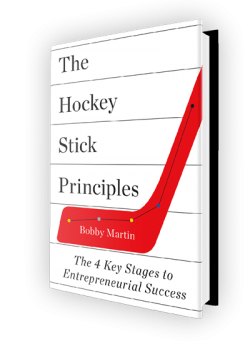 In 1999, when I started First Research, my work consisted of two things: 1. selling my product; and 2) improving my product. That’s pretty much it. I had few distractions. In Wilmington, North Carolina, where I lived at the time, startups were basically non-existent, so there were few random meetings. I’d have a meeting over coffee with an aspiring entrepreneur here and there, or lunch with another startup founder every once in a while, but it was the exception–not the norm. During that stage of my career, I was super-focused, successful, and happy. I had my niche, and that was all I needed. Fast-forward to today, and I have sold First Research and moved to Raleigh. I spend half my days juggling random meetings with vague agendas. My success and happiness have dwindled.
In 1999, when I started First Research, my work consisted of two things: 1. selling my product; and 2) improving my product. That’s pretty much it. I had few distractions. In Wilmington, North Carolina, where I lived at the time, startups were basically non-existent, so there were few random meetings. I’d have a meeting over coffee with an aspiring entrepreneur here and there, or lunch with another startup founder every once in a while, but it was the exception–not the norm. During that stage of my career, I was super-focused, successful, and happy. I had my niche, and that was all I needed. Fast-forward to today, and I have sold First Research and moved to Raleigh. I spend half my days juggling random meetings with vague agendas. My success and happiness have dwindled.
When contacted for a meeting, I’m unsure if people are trying to sell me something, pick my brain, look for funding, find connections, or build relationships. I’m pretty sure they aren’t looking for a friend; otherwise, they wouldn’t request the meeting take place on a weekday at 9 a.m. Most of them just create distracting white noise for me or result in additional meetings.
To put an end to a majority of these random meetings, I started charging $200 for each. Here were my motivations:
- Focus is a beautiful thing: I recently invited my 14-year-old nephew to play golf with me, and he declined because he wanted to play basketball instead. He plays basketball all day long because that’s what he loves to do. And he’s doggone good at it. When you’re focused on one or just a few things, you become passionate about it and learn the important nuances required to be good at it. Constant distraction kills that groove. I’d rather buckle down with one or a few projects than have irons in a lot of different fires.
- I like producing and selling stuff–not talking about it: These days, there’s too much talk and not enough action. People are spending too much time strategizing and not enough time grinding out the work, which is what it really takes to be successful. For example, Schedulefly is one of the most successful businesses I know, and their partners haven’t had a meeting in years. (No exaggeration here.)
- Random meetings are real work: I’m not a professional consultant, but I’m working as hard as one while trying to help people problem-solving in a coffee shop. Many of these meetings require wrestling with difficult-to-solve challenges that require lots of educating and exhausting exchanges. I already have three jobs, thank you. I’ve run out of gas. At least pay me for working.
- I’ve completed my fair share of “helping out”: I’ve complained about these random meetings amongst friends, and they say, “What about helping others, man? People have helped you. Pass it on!” Well, by now I’ve surly repaid my debt in pro bono consulting.
- I’ll eliminate 90 percent of the meetings: Realistically, I don’t need $200, but what I do want is to find out how important a random meeting really is to the person before I book it. If the meeting is not worth $200 to them, then I probably shouldn’t invest my time either. Instead, I should be calling on prospects or building stuff.
Some of you enjoy random meetings (either asking for them or agreeing to them), or perhaps they are necessary networking opportunities for your career. If so, have at it and enjoy. Here are three best practices for contacting people for random meetings:
- Limit the first meeting to 15-minutes: Doing so proves you respect their time and forces you to be concise and get right to the point.
- Offer a clear purpose for the meeting: What is it that you want? What outcome are you looking for? Cutting to the chase enables the person you’re trying to meet with to prepare.
- What’s in it for them?: Offer value to the person you’re trying to meet. Create a win-win. Here is an email I sent to David Cohen, cofounder of Techstars, requesting a meeting.
But for those who hate random meetings as much as I do, consider implementing the $200 plan yourself. It’ll save you time, fatigue, and stress. And your business will probably benefit for it. Cheers, and here’s to eliminating the white noise in your life!
Sign up to get more great insights directly to your inbox.
As a special bonus, you'll also immediately get access to my inside analysis of what made 172 diverse companies achieve take-off revenue growth.

Bobby,
I completely agree with your sentiment on this. Random, meetings with no clear, tangible objective can be a real time and energy suck. Helping others is important, and certainly the way to build relationships, but insisting on a clear goal and ideally some type of mutual benefit or interest can make the difference between feeling drained or energized after meeting with someone.
I came to your site after hearing you on the Rocketship.fm podcast. I’m a startup founder. I get your stance on meetings, but where do you stand on having someone send you their deck (to see if you have any interest as an Angel)? My company is in the ‘blade years’.
Chris